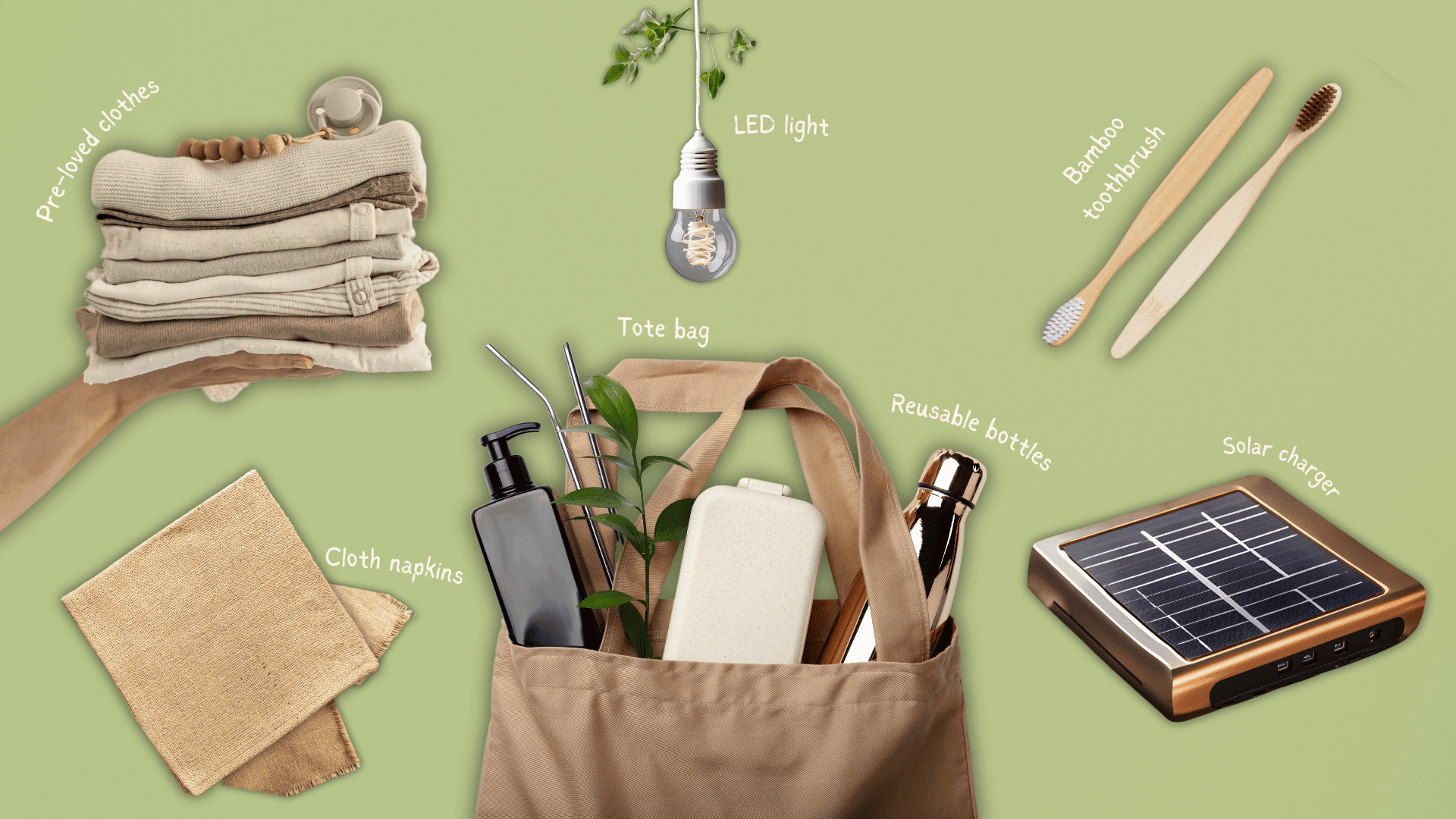7 sustainable items to start your eco-friendly journey
By Mat Richter
We can no longer deny the glaring impacts of climate change, as action was needed decades ago. Although we live in an age of what seems to be shameless greenwashing, where buyers are urged to shop smarter, the essence of going green fails when it’s reduced to mere consumption.
Around one-third of companies called out for greenwashing in 2023 were found to be repeat offenders in 2024, a report from ESG data firm RepRisk stressed. This highlights we can’t fully rely on corporations for us to be eco-friendly; rather, it should start with us—in the discipline and habits we adopt to live sustainably.
Don’t underestimate the impact of individual efforts. Each person can be an eco-warrior in their own right and contribute to lasting change. Here are seven items to kick off your eco-friendly journey.

1. Tote bag
Think of the past grocery or sari-sari store trips you went to, where plastic bags were often used to carry items. Multiplied by millions of people, this aggravates the escalating plastic dilemma. Make a conscious effort to bring a tote bag when making a purchase. If the item can be hand-carried, do so to help curb plastic use.
2. Reusable water bottle
One liter of bottled water can contain about 240,000 pieces of tiny plastic, latest research by the National Institutes of Health found. If you’re a student or worker, choosing reusable water bottles over plastic should be non-negotiable. This is to encourage a sustainable habit and counter the potential health effects of microplastics found in plastic bottles.
3. Biodegradable toothbrush
Toothbrushes need to be replaced from time to time. If they're made of plastic or rubber, they end up polluting our waters and linger so long they outlast us. Instead, and if you have the means to buy, use a biodegradable toothbrush like bamboo to help reduce non-recyclable waste generation.
4. Energy-efficient light
LED lights last much longer and consume 75 percent less energy than traditional bulbs, which otherwise add up to higher carbon emissions. Switching to energy-efficient lighting lets you hit two birds with one stone—helping the environment and saving some cash.
5. Cloth napkin
Paper is much more biodegradable and recyclable than plastic, but think of how many tissues you’ve disposed of last year. Lest we forget, they accumulate and are finite; even hygiene today needs to be sustainable. Try to avoid disposable napkins and use a washable, reusable cloth.
6. Solar charger
Relying solely on electricity boosts carbon footprint, especially when done on a large scale. But a solar charger harnesses the sun to power your devices without using non-renewable sources. It's cheaper and more eco-friendly than electricity.
7. Pre-loved clothing
It’s better to buy secondhand clothes in “ukay-ukay” stores or online, which promote sustainable living, rather than from clothing brands that tend to overstate their green claims in a garment. This not only curbs potential waste but also helps extend the lifespan of fashion items.